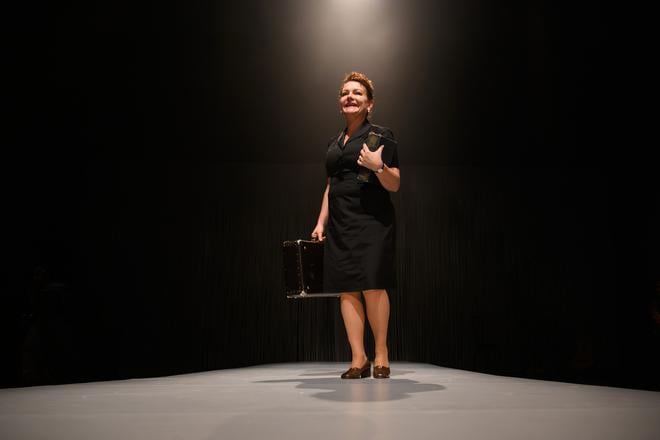It is often said that history repeats itself until mankind learns what it needs to. This idea can come to mind while watching the story of Alžbeta Güntherová-Mayerová, as depicted in a new drama, Bratislava’s Heart (Bratislavské Srdce).
Güntherová-Mayerová was an art historian and one of Slovakia’s first professional conservationists. She could not bear to see movie props purchased for museums in place of genuine historical artefacts. She was a mother who was evicted from her Bratislava apartment and forced to live in a former barn with her small child; a woman whose husband was taken away by men in dark coats to die in prison; and an art historian who managed to persuade cultural barbarians protected by political influence of the irreplaceable value of art in human life.
The play, which is being staged by the P.O. Hviezdoslav Theatre (DPOH) in Bratislava, was originally intended to be “just” a tribute to this Bratislava native and pioneer in the field of art history and conservation. However, it transcends this purpose, resonating on a much deeper level given the current background of what is happening to national culture under the baton of Culture Minister Martiva Šimkovičová, a nominee of the Slovak National Party (SNS).
A strong woman against the backdrop of Slovakia’s history
The preparation of the play began long before the current government came to power. Yet under the leadership of Culture Minister Martina Šimkovičová, whose actions have included the dismissal of several directors of leading Slovak cultural institutions, including the Betliar manor house that owes a lot to Güntherová-Mayerová, the play takes on a strikingly new and timely relevance.
“Slovakia is not just folk costumes and empty talk, Slovakia is mainly people who have done something for this country and about whom we know almost nothing,” said actress Henrieta Mičkovicová, who portrays the subject as a student in the play.
Alžbeta Güntherová-Mayerová, who was called by her students the “passionate conservationist”, worked in silence. She never sought the spotlight, yet she was recognised by experts for the results of her hard work and by those around her for her gentle, tenacious, warm-hearted nature. They named a prize awarded by the Monuments Board of the Slovak Republic after her. But few people outside the art and conservation community know her name.
“Her story is not only the story of a strong woman, but also a kind of chronicle of the history of the Slovak nation from the beginning of the 20th century to the period of normalisation [i.e. the reimposition of doctrinaire communism following the 1968 Warsaw Pact invasion, which reached its fullest extent in the 1970s – Ed. note],” said Mariana Luteránová, the play’s director.


 Anikó Vargová in the Bratislava Heart play. (source: Robert Tappert)
Anikó Vargová in the Bratislava Heart play. (source: Robert Tappert)